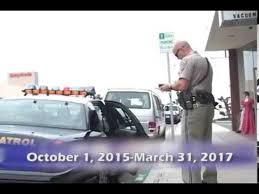SACRAMENTO, California – Drivers with a suspended license or who are still making payments on an old traffic ticket, may qualify for the Traffic Ticket/Infraction Amnesty Program as a result of a law California Gov. Jerry Brown signed last June 24.
Through this program, which started October 1, delinquent drivers may be eligible to:
- Get a 50 percent reduction on unpaid traffic tickets
- Get an 80 percent reduction on unpaid traffic tickets
- Get your suspended license reinstated
Parking tickets, DUIs and reckless driving citations are not eligible under this program. (Amnesty ends March 31, 2017. Visit www.courts.ca.gov/trafficamnesty.htm to find out if you qualify.)
When will the amnesty program be available?
Start: October 1, 2015
End: March 31, 2017
Who can participate in the amnesty program?
There are two groups of people who can participate in the amnesty program:
- Persons with unpaid tickets whose fines were originally due to be paid date on or before January 1, 2013, who have not made a payment after June 24, 2015, may be eligible to have both their debt reduced by 50 or 80 percent depending on income and their driver’s license reinstated, unless an exclusion discussed below applies.
- Persons who made a payment after June 24, 2015 on a ticket are not eligible for a reduction for that ticket, but may be eligible to have their driver’s license reinstated if they are in good standing on a payment plan with a comprehensive collection program.
- Persons with more than one ticket may not be eligible for a reduction on an individual ticket if the eligibility criteria are not satisfied for the ticket. Please check with your court for additional information.
Any persons eligible to have a driver’s license, (including undocumented individuals who are eligible for a driver’s license under AB 60) are entitled to participate in the traffic amnesty program if they meet the eligibility requirements.
Who cannot participate in the amnesty program?
Eligible persons may be excluded from the amnesty program if they owe victim restitution on a case or have certain outstanding misdemeanor or felony warrants.
What if I made a payment after June 24, 2015?
People ineligible due to timing may still have their driver’s license returned, but will not have their fines reduced on tickets with a payment after the deadline .
What tickets will be eligible for amnesty?
Any infraction may qualify for amnesty. Unpaid tickets and related “failure to appear” violations with an initial payment due date on or before January 1, 2013, are eligible.
Individual superior courts and counties may extend this program to include some misdemeanors.
What tickets will not be eligible?
This amnesty program does not apply to parking tickets, reckless driving, and DUI offenses.
How much will I have to pay?
Under the amnesty program, eligible participants will not have to pay any civil assessments. Once the civil assessment amounts are deducted, the remaining balance owed will be reduced by 50 to 80 percent depending on income or receipt of specified public benefits.
- The discount will be 80 percent for those who certify that they make 125 percent or less than the federal poverty level — $14,712 for an individual, or $30,312 for a family of four — or who receive public assistance.
- The discount will be 50 percent for all other eligible participants.
How to participate in the amnesty program?
Beginning on October 1, 2015, contact the superior court in the jurisdiction(s) where you received the ticket(s) to determine your eligibility to participate in the amnesty program. People who are eligible for amnesty will have their application processed without seeing a judge.
Will there be a fee to participate?
Courts, counties, and third party collections vendors are permitted to collect an amnesty program fee of $50 payable to the superior court or county. The Department of Motor Vehicles will also charge a $55 driver’s license reinstatement fee as it does for any license reinstatement.
Will there be an installment payment option?
Yes, a payment plan option will be available through the superior court, county, or third party collections vendors and payments scheduled under the plan will be based on the ability to pay.
Like us on Facebook
